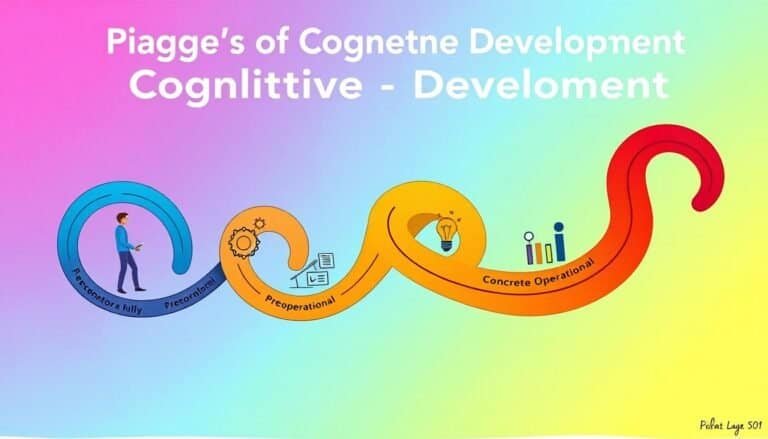Unlocking the Power of Spiritual Intelligence
“Spirituality is not to be learned by flight from the world, or by running away from things, or by turning solitary and going apart from the world. Rather, we must learn an inner solitude wherever or with whomsoever we may be. We must learn to penetrate things and find God there.” – Meister Eckhart
Embracing spiritual intelligence is a journey of inner exploration and awakening. It is the key to unlocking a deeper understanding of oneself and the world, leading to profound emotional wellbeing, inner peace, and a conscious way of living.
Key Takeaways:
- Spiritual intelligence allows individuals to comprehend deeper meanings and values in daily life.
- Developing spiritual intelligence can lead to emotional wellbeing and inner peace.
- Spiritual intelligence empowers individuals to live consciously and manifest their visions effortlessly.
- Measuring and enhancing spiritual intelligence is possible through various practices and assessments.
- Embodying spiritual intelligence involves aligning one’s thoughts, feelings, and actions with spiritual principles.
Understanding Spiritual Intelligence
Spiritual intelligence is a profound recognition of the essence of life itself and the fundamental nature of existence. It is a universal aspect of human beings, transcending cultural and religious boundaries. Being in the spirit, or in touch with one’s spiritual essence, is at the core of spiritual intelligence.
At its essence, spiritual intelligence involves delving deep within oneself to comprehend the deeper meanings, values, and unconscious elements that shape one’s being. It goes beyond superficial knowledge and taps into the wisdom and insights that reside within. This intelligence is not confined to a specific belief system or tradition; it resonates with individuals from all walks of life.
Spiritual intelligence allows individuals to make sense of their existence and find meaning in their daily lives. It enables them to align their thoughts, feelings, and actions with their spiritual beliefs and values. Embodying spiritual intelligence involves integrating these profound insights into one’s interactions, decisions, and behaviors.
“Spiritual intelligence is the key to unlocking our inner potential and experiencing a deep sense of fulfillment and purpose.” – David R. Hawkins
By cultivating spiritual intelligence, individuals gain a broader perspective on life, recognizing the interconnectedness of all beings. This understanding fosters empathy, compassion, and a sense of responsibility toward others and the world at large.
The Essence of Life and the Universal Aspect
The essence of life lies in the realization that human beings are not separate entities but interconnected with everything around them. Spiritual intelligence enables individuals to tap into this universal aspect of existence, transcending the boundaries of the ego and embracing the oneness of all beings.
Being in the spirit means embodying this timeless wisdom that has been passed down through generations. It involves cultivating qualities such as love, kindness, humility, and forgiveness, which are essential for personal growth and harmonious relationships.
Through spiritual intelligence, individuals tap into a deeper well of wisdom and guidance, enhancing their ability to navigate life’s challenges and make decisions aligned with their highest values.
The Integration of Spiritual Intelligence
Integrating spiritual intelligence into daily life is a transformative process that involves conscious awareness, self-reflection, and intentional action. It requires individuals to live in alignment with their spiritual beliefs, allowing these principles to guide their thoughts, emotions, choices, and relationships.
By applying spiritual intelligence in their interactions, individuals cultivate deeper connections and foster a sense of unity and harmony. They become more attuned to the needs of others, fostering empathy and compassion as they navigate the complexities of human relationships.
Embracing spiritual intelligence empowers individuals to live a purpose-driven life, one that is aligned with their higher self and values. It enables them to find inner peace, experience a sense of fulfillment, and contribute to the betterment of society.
Stay tuned as we delve further into the importance of spiritual intelligence and its transformative potential in the upcoming sections.
The Importance of Spiritual Intelligence
Spiritual intelligence goes beyond personal fulfillment; it has the power to change the world. When individuals tap into their spiritual intelligence, they gain a deep understanding of the interconnectedness of all beings and the universe. This awareness cultivates empathy and compassion towards others, leading to a more harmonious and peaceful world.
By embracing spiritual intelligence, individuals can access the infinite source of love and wisdom within themselves. This connection empowers them to navigate life’s challenges with grace and resilience, finding solace and guidance in times of uncertainty.
“Spiritual intelligence enables us to see the divine spark in every individual, fostering unity, understanding, and cooperation. It is through this lens that we can create a global community built on love and respect.”
Furthermore, spiritual intelligence gives individuals a sense of purpose and meaning. By aligning their values and actions with their spiritual beliefs, they can create a positive impact on the world. Whether it’s initiating social change, supporting charitable causes, or simply being kind and compassionate to others, every act driven by spiritual intelligence contributes to a collective shift towards a more conscious and compassionate society.
Embodying spiritual intelligence is not only transformative on an individual level but also ripples outwards, inspiring others to awaken their own spiritual potential. Through personal growth and self-discovery, individuals become beacons of light, radiating positivity and influencing those around them to embrace spiritual intelligence and make a difference in the world.
As spiritual intelligence spreads, it has the potential to create lasting change and bring about a world where love, harmony, and understanding prevail.
The Power of Spiritual Intelligence
The power of spiritual intelligence lies in its ability to guide individuals towards personal fulfillment and transform the world through love, compassion, and conscious actions. By developing and embracing spiritual intelligence, we can unlock our true potential and become catalysts for positive change.
The Different Types of Intelligence
Intelligence comes in various forms, each with its own unique focus. Cognitive intelligence (IQ), emotional intelligence (EQ), and spiritual intelligence (SQ) are three distinct types that encompass different aspects of human cognition and understanding.
Cognitive intelligence, often measured through IQ tests, is primarily concerned with an individual’s thinking abilities, problem-solving skills, and analytical reasoning. It involves the capacity to process information, learn new concepts, and apply logical thinking in various domains.
Emotional intelligence, on the other hand, revolves around understanding and managing emotions, both within oneself and in interpersonal interactions. EQ encompasses self-awareness, empathy, emotional regulation, and effective communication.
“Emotional intelligence is the ability to recognize, understand, and manage our own emotions and to recognize, understand, and influence the emotions of others.” – Daniel Goleman
Spiritual intelligence, sometimes referred to as SQ, pertains to deeper values, purpose, and connection to the divine or the transcendent. It goes beyond cognitive and emotional aspects to embrace a holistic understanding of one’s spiritual nature and the greater interconnectedness of all beings.
While cognitive intelligence focuses on thinking abilities and emotional intelligence emphasizes understanding and managing emotions, spiritual intelligence broadens the scope to encompass a sense of purpose, meaning, and inner wisdom.
To better illustrate the differences, here is a table that highlights the key characteristics of each type of intelligence:
| Type of Intelligence | Primary Focus | Key Attributes |
|---|---|---|
| Cognitive Intelligence (IQ) | Thinking abilities, problem-solving | Analytical reasoning, logical thinking |
| Emotional Intelligence (EQ) | Understanding and managing emotions | Self-awareness, empathy, effective communication |
| Spiritual Intelligence (SQ) | Deeper values, purpose, connection to the divine | Sense of purpose, inner wisdom, interconnectedness |
The table above provides a concise overview of how cognitive intelligence, emotional intelligence, and spiritual intelligence differ in their primary focus and key attributes. While each type of intelligence is distinct, they can all coexist and complement one another in the quest for personal growth and understanding.
The 21 Qualities of Spiritual Intelligence
Spiritual intelligence, as measured by the SQ21 model, encompasses a range of qualities or skills that individuals can cultivate to enhance their spiritual intelligence and guide their actions and behaviors in daily life.
These 21 spiritual qualities are:
- Self-awareness: Being conscious of one’s thoughts, emotions, and behaviors.
- Spontaneity: Expressing oneself authentically and embracing the flow of life.
- Empathy: Understanding and sharing the feelings of others.
- Forgiveness: Releasing grudges and cultivating compassion towards oneself and others.
- Humility: Recognizing one’s own limitations and treating others with respect.
- Patience: Cultivating the ability to wait calmly and endure difficulties.
- Generosity: Sharing one’s resources, time, and kindness with others.
- Gratitude: Appreciating and expressing thankfulness for life’s blessings.
- Compassion: Showing kindness and understanding towards all living beings.
- Ethics: Upholding moral principles and behaving with integrity.
- Vision: Having a clear sense of purpose and a long-term perspective.
- Creativity: Fostering innovative thinking and embracing new possibilities.
- Joy: Cultivating inner happiness and finding joy in everyday experiences.
- Courage: Facing fears and taking bold actions guided by one’s values.
- Love: Nurturing a deep sense of connection and care for all beings.
- Playfulness: Embracing a spirit of lightheartedness and finding joy in the present moment.
- Presence: Being fully aware and engaged in the present moment.
- Wisdom: Seeking deeper understanding and making wise decisions.
- Peace: Cultivating inner tranquility and promoting peace in the world.
- Purpose: Living with a sense of meaning and contributing to a greater purpose.
By nurturing these spiritual qualities, individuals can enhance their spiritual intelligence and foster a deeper connection with themselves, others, and the world around them.
| Spiritual Qualities | Description |
|---|---|
| Self-awareness | Being conscious of one’s thoughts, emotions, and behaviors. |
| Spontaneity | Expressing oneself authentically and embracing the flow of life. |
| Empathy | Understanding and sharing the feelings of others. |
| Forgiveness | Releasing grudges and cultivating compassion towards oneself and others. |
| Humility | Recognizing one’s own limitations and treating others with respect. |
| Patience | Cultivating the ability to wait calmly and endure difficulties. |
| Generosity | Sharing one’s resources, time, and kindness with others. |
| Gratitude | Appreciating and expressing thankfulness for life’s blessings. |
| Compassion | Showing kindness and understanding towards all living beings. |
| Ethics | Upholding moral principles and behaving with integrity. |
| Vision | Having a clear sense of purpose and a long-term perspective. |
| Creativity | Fostering innovative thinking and embracing new possibilities. |
| Joy | Cultivating inner happiness and finding joy in everyday experiences. |
| Courage | Facing fears and taking bold actions guided by one’s values. |
| Love | Nurturing a deep sense of connection and care for all beings. |
| Playfulness | Embracing a spirit of lightheartedness and finding joy in the present moment. |
| Presence | Being fully aware and engaged in the present moment. |
| Wisdom | Seeking deeper understanding and making wise decisions. |
| Peace | Cultivating inner tranquility and promoting peace in the world. |
| Purpose | Living with a sense of meaning and contributing to a greater purpose. |
These qualities encompass a wide spectrum of virtues that can guide individuals towards a more fulfilling and spiritually enriching life.
Measuring Spiritual Intelligence
The SQ21 assessment tool is a valuable resource for measuring an individual’s spiritual intelligence. This tool consists of 21 thought-provoking questions that evaluate an individual’s ability to apply spiritual intelligence principles in their daily life. By completing the assessment, individuals gain valuable insights into their strengths and areas for improvement in terms of spiritual intelligence.
The SQ21 assessment serves as a guide for further evolution and development of spiritual intelligence. It allows individuals to identify specific areas where they can enhance their understanding, awareness, and embodiment of spiritual principles. Through self-reflection and introspection prompted by the assessment questions, individuals can gain a deeper understanding of their spiritual intelligence and explore ways to deepen their connection to their higher selves.
Moreover, the SQ21 assessment provides individuals with a framework for growth. By identifying personal strengths in spiritual intelligence, individuals can further cultivate those qualities and apply them more consciously and consistently in their daily lives. It also highlights areas where individuals may need to focus more on developing their spiritual intelligence, fostering a path of self-improvement and personal transformation.
With the valuable insights gained from the SQ21 assessment, individuals can navigate their spiritual journey with greater clarity and intention. It serves as a tool for self-discovery and self-mastery, enabling individuals to align their thoughts, emotions, and actions with their spiritual beliefs and values. As individuals continue to develop their spiritual intelligence, they open themselves to a deeper understanding of life’s purpose, meaning, and interconnectedness.
The benefits of using the SQ21 assessment tool:
- Gain insight into personal strengths in spiritual intelligence
- Identify areas for improvement and growth
- Create a roadmap for developing and deepening spiritual intelligence
- Align thoughts, emotions, and actions with spiritual beliefs
- Enhance self-awareness and self-mastery
Enhancing Spiritual Intelligence
Spiritual intelligence can be deepened and enhanced through various practices and techniques. These methods help individuals connect with their inner selves, cultivate mindfulness, and experience a state of stillness and calm. By incorporating activities such as mindfulness, stillness, and meditation into one’s daily routine, spiritual intelligence can be expanded, leading to a greater sense of self-awareness and connection to the divine.
Mindfulness: Practicing mindfulness is a powerful way to enhance spiritual intelligence. By being fully present in the moment and non-judgmental of one’s thoughts and emotions, individuals can develop a deeper awareness of themselves and their surroundings. Mindfulness allows for a more profound connection to the present moment and the underlying spiritual essence within it.
Stillness: Cultivating stillness is another key aspect of developing spiritual intelligence. By creating moments of silence and tranquility in daily life, individuals can tap into their higher mind and connect with their inner wisdom. Engaging in activities that promote stillness, such as meditation, mindful walks, or spending time in nature, facilitates a deeper connection to one’s spiritual essence.
Meditation: Regular meditation practice is a powerful tool for elevating spiritual intelligence. Meditation allows individuals to quiet the mind, cultivate inner peace, and open themselves up to higher consciousness. One effective meditation practice is the 6 Phase Meditation, which incorporates elements such as gratitude, forgiveness, visualization, and connection to higher guidance, enabling individuals to align their intentions with their spiritual beliefs and aspirations.
Integrating these practices into daily life can enhance spiritual intelligence and contribute to overall wellbeing and fulfillment. By nurturing mindfulness, stillness, and meditation, individuals can embark on a journey of self-discovery, spiritual growth, and a deeper connection to the essence of life itself.
Embodying Spiritual Intelligence
Embodying spiritual intelligence means integrating your spiritual beliefs into your daily life. It requires aligning your thoughts, feelings, and actions with the principles of spiritual intelligence. By applying self-awareness, empathy, forgiveness, gratitude, compassion, and other spiritual qualities, you can infuse spiritual intelligence into your daily behaviors and interactions with others.
When you practice self-awareness, you cultivate a deeper understanding of your inner world and how your thoughts and emotions can affect your actions. This awareness allows you to make conscious choices aligned with your spiritual beliefs, promoting harmony and authenticity in your daily life.
Embodying spiritual intelligence involves living your values, not just professing them. It means walking your talk and being a living example of the principles you hold dear.
Being empathetic toward others is another crucial aspect of embodying spiritual intelligence. Empathy allows you to connect with others on a deeper level, understanding their perspectives and experiences. It enables you to show compassion, support, and kindness to those around you, fostering meaningful connections and promoting a sense of unity.
Forgiveness and gratitude are transformative practices that can help you embody spiritual intelligence. Forgiveness liberates you from the burden of resentment and promotes inner peace, while gratitude cultivates a mindset of abundance and appreciation for life’s blessings. By practicing forgiveness and gratitude, you create a harmonious and joyful environment within yourself and in your relationships.
By integrating spiritual intelligence into your daily life, you create a ripple effect of positive change. Your actions and interactions reflect your spiritual beliefs, inspiring others and contributing to a more compassionate and harmonious world.
Integrating Spiritual Intelligence: Practical Tips
Here are some practical tips to help you embody spiritual intelligence in your daily life:
- Practice mindfulness: Cultivate present-moment awareness and non-judgmental acceptance of your thoughts, feelings, and experiences.
- Engage in regular meditation: Set aside dedicated time for stillness and connection with your higher self through meditation or mindful activities like walking in nature.
- Embrace self-reflection: Take time to reflect on your thoughts, emotions, and behaviors, identifying areas for growth and alignment with your spiritual values.
- Act with kindness and compassion: Extend love and understanding to others, treating them with kindness, empathy, and respect.
- Practice forgiveness: Let go of grudges and resentments, forgiving yourself and others for past mistakes or hurts.
- Cultivate gratitude: Cultivate a daily gratitude practice, acknowledging and appreciating the blessings in your life.
By consciously applying these practices and embodying spiritual intelligence in your daily life, you can create a profound shift in your own wellbeing and contribute to a more harmonious and compassionate world.
Conclusion
Spiritual intelligence has the power to bring about inner transformation and conscious living. By embracing and cultivating spiritual intelligence, individuals can experience emotional wellbeing and find inner peace. This deeper understanding of oneself allows individuals to connect with their higher selves and tap into their unlimited potential.
Recognizing the interconnectedness of all beings, individuals who embody spiritual intelligence can manifest their visions effortlessly and create a positive impact on their lives and the world around them. By applying the principles of spiritual intelligence, such as self-awareness, empathy, forgiveness, and gratitude, individuals can align their thoughts, feelings, and actions with their spiritual beliefs.
Living a life guided by spiritual intelligence leads to conscious living, where individuals are mindful of their choices and actions. Through their embodiment of spiritual intelligence, individuals can create a ripple effect of love, compassion, and wisdom in their interactions with others. The journey of spiritual intelligence is a lifelong process of growth and evolution that brings about profound transformation and fulfillment.
FAQ
What is spiritual intelligence?
Spiritual intelligence is the ability to comprehend deeper meanings, values, and unconscious elements of oneself and embody them in daily life. It allows individuals to connect with their higher selves and manifest their visions effortlessly.
How does spiritual intelligence contribute to emotional wellbeing and inner peace?
Developing spiritual intelligence can lead to emotional wellbeing and inner peace. It enables individuals to cultivate self-awareness, empathy, forgiveness, gratitude, and compassion, which are essential for achieving emotional balance and finding inner peace.
How does spiritual intelligence relate to conscious living?
Spiritual intelligence encompasses living in alignment with one’s deeper values, purpose, and connection to the divine. By embodying spiritual intelligence, individuals can lead conscious lives, making deliberate choices that are in harmony with their spiritual beliefs and the greater good.
Can spiritual intelligence change the world?
Absolutely! Spiritual intelligence goes beyond personal fulfillment and has the power to change the world. By recognizing the interconnectedness of all beings, cultivating empathy and compassion, and tapping into the infinite source of love and wisdom within, individuals with high spiritual intelligence can create positive ripple effects in their surroundings and beyond.
How does spiritual intelligence differ from cognitive and emotional intelligence?
While cognitive intelligence focuses on thinking abilities and emotional intelligence emphasizes understanding and managing emotions, spiritual intelligence is centered around deeper values, purpose, and connection to the divine. It taps into the essence of life itself and allows individuals to embody their spiritual beliefs in daily life.
What are the qualities of spiritual intelligence?
The SQ21 model outlines 21 spiritual qualities that contribute to spiritual intelligence. These qualities include self-awareness, spontaneity, empathy, forgiveness, humility, patience, generosity, gratitude, compassion, ethics, vision, creativity, joy, courage, love, playfulness, presence, wisdom, peace, and purpose.
How is spiritual intelligence measured?
Spiritual intelligence can be measured using the SQ21 assessment tool. This tool consists of 21 questions that evaluate an individual’s ability to apply spiritual intelligence principles in their daily life. Completing the assessment provides insight into one’s strengths and areas for improvement in terms of spiritual intelligence.
How can I enhance my spiritual intelligence?
There are several proven ways to deepen and enhance spiritual intelligence. Practicing mindfulness, cultivating stillness, and connecting with one’s higher mind through activities like meditation and mindful walks can improve spiritual intelligence. Developing a regular meditation practice, such as the 6 Phase Meditation, can further elevate spiritual intelligence.
How can I embody spiritual intelligence in my daily life?
Embodying spiritual intelligence involves living one’s spiritual beliefs in daily life. It requires aligning one’s thoughts, feelings, and actions with the principles of spiritual intelligence. By practicing self-awareness, empathy, forgiveness, gratitude, compassion, and other spiritual qualities, individuals can integrate spiritual intelligence into their daily behaviors and interactions with others.
How can spiritual intelligence transform my life?
By embracing and cultivating spiritual intelligence, individuals can experience emotional wellbeing, inner peace, and conscious living. It allows them to connect with their higher selves, recognize the interconnectedness of all beings, and manifest their visions effortlessly. Embodying spiritual intelligence empowers individuals to create a positive impact on their lives and the world around them.







